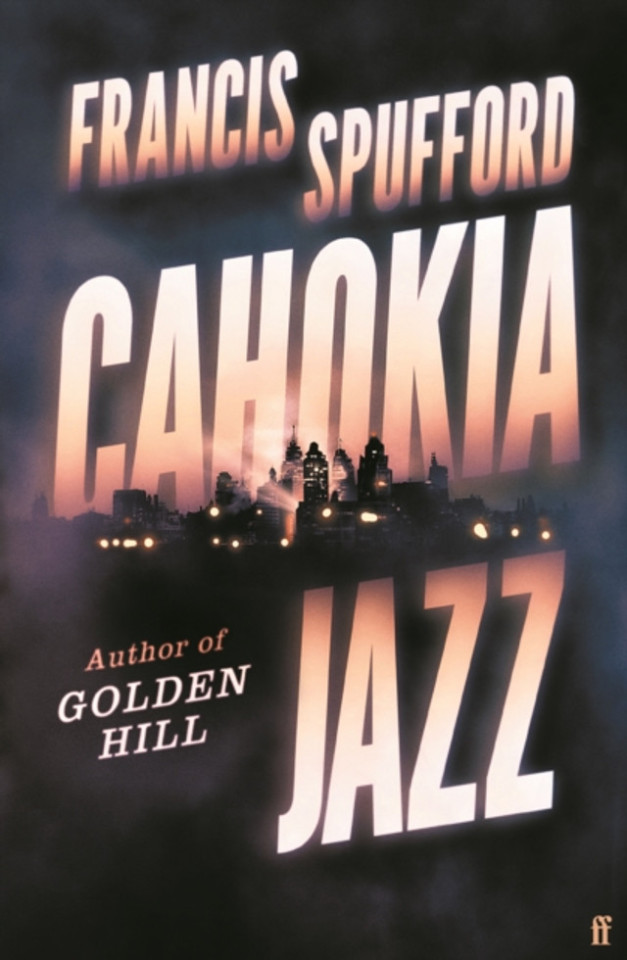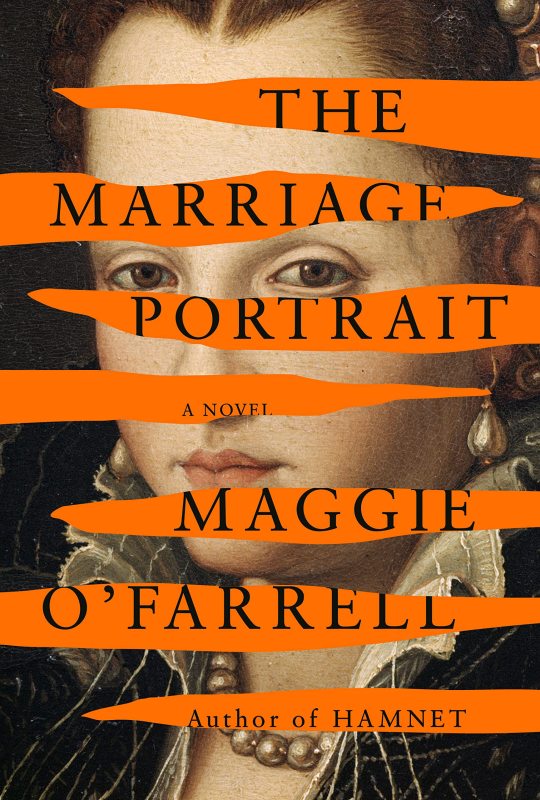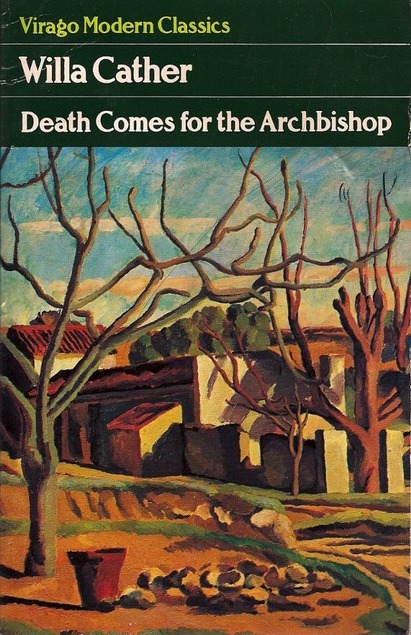#Francis Spufford
Explore tagged Tumblr posts
Text
"I resisted its lessons. The student wizard Ged cracks open the surface of the night and releases a shadow version of himself into the world, a Jungian clot of personal darkness, that hunts him till he turns to face it and incorporates it back into himself where it belongs, by naming it with its true name: his own. I resolutely thought of the shadow as a bogey alien to Ged, and wondered why he wasn’t different at the end of the book when that dark thing was inside him. You cannot outrun yourself, the story said: a deeply unwelcome thought to me. I didn’t go to the worlds of story to be reminded that on a dark road your anger and your cruelty pace just behind you, daring you to turn your head, unless you let them travel safely within you."
- Francis Spufford on Ursula K. Le Guin's A Wizard of Earthsea, in The Child That Books Built (2002), p. 84–85.
#francis spufford#ursula k. le guin#a wizard of earthsea#fantasy novel#earthsea#childhood reading#literary quote#personal favs#sparrowhawk#ged
327 notes
·
View notes
Text
I have just finished Cahokia Jazz by Francis Spufford and it has rewired my brain. I can't remember the last time I consumed such a perfect piece of hard-boiled detective fiction that nevertheless does completely original things with the genre; it is to noir what The English (2022) is to Westerns. It's set in an alternate Jazz Age America where, due to a historical divergence in the strain of smallpox that first reached North America, Indigenous peoples continue to hold power in Cahokia in the Roaring Twenties. (There is a cameo here from the cultural anthropologist Alfred Kroeber, who among many other things happens to be the father of Ursula K. Le Guin; it took me a while to figure out that Spufford dedicated Cahokia Jazz to her. This is the level of nerdery you can expect from what is otherwise a very fine piece of pulp fiction).
Anyway tl;dr I hope this gets made into a film someday so they can cast Chaske Spencer as the lead. I think what the world needs is Chaske Spencer as a hard-boiled detective, the man who must go down these mean streets but who is not himself mean, and who is also secretly a talented jazz pianist. I feel this would be such a gift.
66 notes
·
View notes
Text

(From Francis Spufford’s “The Child That Books Built”)
#reading#books#francis spufford#the child that books built#bibliophilia#bibliophile#bibliomania#bibliotherapy#literature
10 notes
·
View notes
Quote
This is a pretty average year. Worse than last year, better than the next.
Dinah
96 notes
·
View notes
Text

Title: The Child That Books Built | Author: Francis Spufford | Publisher: Faber & Faber (2018)
3 notes
·
View notes
Text
"Returned officers of polar expeditions could expect to see their narratives accepted by prestigious publishers; there was regular coverage of expeditions in the serious reviews, including condensed extracts of those narratives; and explorers, who had perhaps set off grateful for a full-pay posting in the shrunken peace- time Navy, found themselves celebrities when they docked in England. Doors opened for them into new social worlds: London society, the literary scene, the kind of clubs to which a hero might be admitted where a simple Navy man might not. The Navy was, anyway, in the process of gentrifying. Though it remained a distinct caste among the other subtle castes of genteel English life, it was shedding the rough-and-ready image of the eighteenth century, along with the social mobility that meant naval officers were not always fit for drawing-rooms. The Arctic captains were themselves of the generation that would cease to speak of money in public. And drawing-rooms received them. [...] The social success of the explorers contributed to the imaginative visibility of exploration. People from the world of the arts who had not particularly noticed the polar coverage in the journals, or paid much attention to the increasing presence of polar books on John Murray’s excellent list, might find themselves sharing a mantelpiece with an explorer at a party; and the Arctic made a social entrance into their minds. Questions could be asked. What is an iceberg like, sir? Is it true that some are a most beautiful blue? Even those fastidious types who let a person’s standing determine the mental houseroom they gave a subject might now, seeing an explorer deep in conversation with the unimpeachable Lady L—, discover that exploration was rude and barbarous only in an exciting way. One might go over oneself. One might permit oneself to be thrilled. I understand you ate your boots, Captain: how remarkable."
I May Be Some Time: Ice and the English Imagination, Francis Spufford
#I May Be Some Time#Franklin Expedition#Polar history#Polar Exploration#books#words#Francis Spufford#this writing is so good sometimes I recite the end of this passage out loud to myself#polar tag
4 notes
·
View notes
Text

A thrilling tale of murder and mystery in a city where history has run a little differently -- from the best-selling author of Golden Hill. In a city that never was, in an America that never was, on a snowy night at the end of winter, two detectives find a body on the roof of a skyscraper. It's 1922, and Americans are drinking in speakeasies, dancing to jazz, stepping quickly to the tempo of modern times.
But in this 1922, things are a little different. Beside the Mississippi, the ancient indigenous city of Cahokia has lived on. It is now a teeming industrial metropolis, containing every race and creed.
Among them, peace holds. Just about. But that body on the roof is about to spark off a week of drama that will spill the secrets of this altered world, and bring it, against a soundtrack of jazz clarinets and wailing streetcars, either to destruction or rebirth.
The multiple award-winning Francis Spufford returns, with a lovingly-created, richly pleasure-giving, epically-scaled, wise-cracking, bone-breaking novel set in a golden age of wicked entertainments.
Daily inspiration. Discover more photos at Just for Books…?
2 notes
·
View notes
Text
Books Read in November:
1). Antarctica (Claire Keegan)
2). Dottie (Abdulrazak Gurnah)
3). Almost English (Charlotte Mendelson)
4). Things to Come (Hester Styles Vickery)
5). The Dear Departed (Brian Moore)
6). The Child that Books Built (Francis Spufford)
7). Mr. Fox (Helen Oyeyemi)
8). Wild (Cheryl Strayed)
#my literary life#adult booklr#book list#booklr#claire keegan#abdulrazak gurnah#charlotte mendelson#hester styles vickery#brian moore#francis spufford#helen oyeyemi#cheryl strayed#(usually November is one of my more productive reading months - but not this one)#(though - to be fair to me - Dottie took ages and I was also in the midst of a move)
2 notes
·
View notes
Text

We tell no stories of the great wood from memory in England.
- Francis Spufford, The Child That Books Built
…
Detail from Thomas Gainsborough (1727-1788) Cornard Wood, near Sudbury, Suffolk, 1748
Seen at National Gallery, London
#english imagination#english culture#albion#england#english art#english landscape#english writer#nature in England#the great wood#thomas gainsborough#Francis Spufford#quote#book quote#quote about England
1 note
·
View note
Text
The thing that makes Spufford's woldbuilding so good in Cahokia Jazz is that everything is only one step to the left of our own timeline--he never has to sit down in the mud of his own universe and start drawing pictures because a single breezing reference is enough. (I thought of this especially when he introduced the Radical Party and mentioned them branching off from the Republicans--there you go! The reader understands immediately who they are and what they're about, and Spufford can get on with his story. And this is only one of many examples of this in the novel; he does it really, really nicely.)
But also--the thing that makes Spufford's worldbuilding so frustrating is also the fact that everything is only one step to the left of our own timeline. You're telling me that the Mississippian culture survived and thrived and the subsequent world is only that little bit different? I had this reaction before even starting the actual text of the novel, looking at the alt-history U.S. map in the front, and throughout the whole rest of the book I couldn't stop thinking about it. I won't say the world Spufford created seemed thin, because it didn't--that's the excellence of this style and how he deployed it, because the surface of Spufford's prose and of Cahokia itself was so rich and textured. But it was I thought very shallow--once you tried to step down beneath that surface there's nothing there, because in order to make an invented history explicable it can only be a little bit invented, and the premise Spufford used as his jumping-off point was just too big.
(I don't read a lot of alt-history, so maybe I am just relitigating a known problem or stepping into a hotly-debated mire, but I found it to be a fascinating catch-22--especially for a writer like Spufford, who is so good at history and stories and telling history as stories.)
#i would like to make clear here that i did love it#as we all know i am if i am nothing else a francis spufford fangirl#and that is in part Why i'm so interested in dissecting this: he's good enough that his writing is a frame worth thinking about this throug#books tag#francis spufford#also thanks to @inclineto who spurred me to un-pause this in my library holds
1 note
·
View note
Text
A Taste of Freedom

Dear Caroline:
Just one day late, here are some considerations on the last of my Carolingian reads and recommendations (and also making progress with Too Like the Lightning). I concur that the book is delightful to read: the author shows a very seductive, somewhat baroque and leisurely language in each and every page which makes it a little work of art - in view of that fact that we're in the 18th century, perhaps a metaphor for those antique pocket watches I so very much love, their tiny gears embracing metallic cogs and wheels, and the occasional semi-precious stone, a melding of quaint, industrial and lovely which seldom pair well together. But I digress: the language was nice and the plot was artistically done. Alas, for all the joy it has given me, I would happily exchange it for a glance at your delight, and at your hands gesticulating excitedly.
That old New York long ago ceased to exist, and yet I imagine that more than once you treaded on its shadows, when you yourself were working in the Big Apple. I don't know if Jane Street's offices are in Manhattan, but it would be apt, with your footsteps running from time to time upon the unseen cobbles of long-disappeared Golden Hill street.
I am tempted to take a look at Digital Gold -gold always tempts, doesn't it-, although I have already gone through some books on cryptocurrencies, and I would not be able to pool the synergies of the double bind you suggest. But I do love cities -generally, from a distance- and my next digital foray is likely to be Glaeser's Triumph of the City, a pean to the spaces where, since not so long ago, live more than half of the planet's residents.
Talking of shadows, I tend to see them behind every intelligent and engaging woman I read about, and Tabitha isn't going to be an exception. I see her as a mirror of yourself in those words that Mr. Smith exchanges with her in their last meeting:
Quote:
“And I am trying to tell you that I like you. ‘Despite all the flaws I have, according to you?’ ‘Despite them; because of them; who knows? I like all of you. I like the bird and I like the cage. I like the polished mind and the rough tongue. I like the tearing claws and the warm hands. I like the monster and I like the girl.’ ‘I do not like myself very much,’ said Tabitha painfully. ‘I know.”
Francis Spufford, Golden Hill
0 notes
Text
Looks interesting, but I wonder why the cover doesn't give any hint as to what makes this novel special and makes it look like a standard '20s whodunit retro novel.
Francis Spufford’s “Cahokia Jazz”

Tomorrow (December 5), I'm at Flyleaf Books in Chapel Hill, NC, with my new solarpunk novel The Lost Cause, which 350.org's Bill McKibben called "The first great YIMBY novel: perceptive, scientifically sound, and extraordinarily hopeful."

Francis Spufford's Cahokia Jazz is a fucking banger: it's a taut, unguessable whuddunit, painted in ultrablack noir, set in an alternate Jazz Age in a world where indigenous people never ceded most the west to the USA. It's got gorgeously described jazz music, a richly realized modern indigenous society, and a spectacular romance. It's amazing:
https://www.simonandschuster.com/books/Cahokia-Jazz/Francis-Spufford/9781668025451
Cahokia is the capital city of Deseret, a majority Catholic, majority indigenous state at the western frontier of the USA. It swirls with industry, wealth, and racial politics, serving as both a refuge from Jim Crow and a hive of Klan activity. Joe Barrow is new in town, a veteran who survived the trenches of WWI and moved to Cahokia with his army buddy, Phineas Drummond, where they both quickly rose through the police ranks to become detectives.
We meet Joe and Phin on a frigid government building rooftop in the predawn night, attending a grisly murder. Someone has laid out a man across a skylight, cut his throat, split his chest open, and excised his heart. This Aztec-inspired killing points at Cahokian indigenous independence gangs, some of whom embrace an apocryphal tale of being descended from Mesoamerican conquerors in the distant past. That makes this more than a mere ugly killing – it's a political flashpoint.
The Klan insists that Cahokia's system of communal land ownership is a form of communism (Russia never ceded Alaska in this world, so the USSR is now extending tendrils across the Bering Strait). They also insist that Cahokians' reverence for the Sun and the Moon – indigenous royals who have formally ceded power to elected leaders – makes them a threat to democracy. Finally, the Cahokians' fusion of Catholocism with traditional faith makes the spritually suspect. A rooftop blood-sacrifice could cause simmering political tension to boil over, and for ever white oligarch drooling at the thought of enclosing the shared land of Deseret, there are a thousand useful idiots in white hoods.
Joe and Phin now have to solve the murder – before the city explodes. But Phin seems more interested in pinning the case on an Indian – any Indian – than he is on solving the murder. And Joe – an indigenous orphan who has neither the language nor the culture that the Cahokians expect him to have – is reappraising his long habit of deferring to Phin.
This is the setup for a delicious whodunnit with a large helping of what if…? but Spufford doesn't stop there. Joe, you see, is a jazz pianist, and his old bandmates are back in town, and one thing leads to another and before you know it he's sitting in with them at a speakeasy. This gives Spufford a chance to roll out some of the most evocative, delicious descriptions of jazz since Doctorow's Ragtime (no relation):
https://www.penguinrandomhouse.ca/books/41529/ragtime-by-e-l-doctorow/9780812978186
It's not just the jazz. This is a book that fires on every cylinder: there's brilliant melee (and a major battle set-piece that's stunning), a love storyline, gunplay, and a murder mystery that kept me guessing right to the end. There's fakeouts and comeuppances, bravery and treachery, and above all, a sense of possibility.
Most of what I know about Cahokia – and the giant mounds it left behind near St Louis – I learned from David Graeber and David Wengrow's brilliant work of heterodox history, The Dawn of Everything:
https://pluralistic.net/2022/03/08/three-freedoms/#anti-fatalism
Graeber and Wengrow's project is to make us reassess the blank spaces in our historical record, the ways of living that we have merely guessed at, based on fragments and suppositions. They point out that these inferences are vastly overdetermined, and that there are many other guesses that fit the facts equally well, or even better. This is a powerful message, one that insists that history – and thus the future – is contingent and up for grabs. We don't have to live the way we do, and we haven't always lived this way. We might live differently in the future.
In evoking a teeming, indigenous metropolis, conjured out of minor historical divergences, Spufford follows Graeber and Wengrow in cracking apart inevitability and letting all the captive possibility flow out. The fact that he does this in a first rate novel makes the accomplishment doubly impressive – and enjoyable.


It's EFF's Power Up Your Donation Week: this week, donations to the Electronic Frontier Foundation are matched 1:1, meaning your money goes twice as far. I've worked with EFF for 22 years now and I have always been - and remain - a major donor, because I've seen firsthand how effective, responsible and brilliant this organization is. Please join me in helping EFF continue its work!

If you'd like an essay-formatted version of this post to read or share, here's a link to it on pluralistic.net, my surveillance-free, ad-free, tracker-free blog:
https://pluralistic.net/2023/12/04/cahokia/#the-sun-and-the-moon
96 notes
·
View notes
Photo




Books Read in April 2023
Golden Hill by Francis Spufford
A BANGER. I was recommended this after I mentioned to someone I head read Light Perpetual. It’s such a good book. Set in NYC in the 1700s a mysterious British man rolls into town with a ton of money. Is he a scammer? Is he just rich? Who knows! Mysterious and wonderful and FUN.
The Marriage Portrait by Maggie O’Farrell
Oooh boy, did not like this one. O’Farrell writes a fictionalized version of the life of Lucrezia Medici, who was also the subject of Robert Browning’s poem My Last Duchess. The characterization of her early years and then the way O’Farrell writes her later doesn’t really match. Also there’s a really grotesque final twist I could see coming from a million miles away but is like...morally disturbing and she ignores the complexity of it completely! Disappointing.
Death Comes for the Archbishop by Willa Cather
I really struggled to see why this is such a classic and I guess for the time it must have been pretty progressive. The novel is historical fiction loosely based on the life of the first Bishop of New Mexico and how he struggled to establish his congregation. It’s a set of very loose stories really, each very brief. But the way she describes the indigenous and Latino people who populated this area is really offensive. It’s not like the Catholic church was all noble and meek. They did horrible things and were terribly disrespectful. This white washes a lot.
Riders in the Chariot by Patrick White
Problematic Catholic book part deux. I went into this blind and I regret everything. It’s basically a passion book set in Australia about a group of loosely connected people in a small (fictionalized) town. They all see religious visions of a chariot and one of the characters is Christ re-incarnated.
INCREDIBLY anti-semetic. I don’t think White was trying to be but wow does this play into offensive tropes about Jewish people and the Holocaust. One of the characters is a German-Jewish man who sort of meekly accepts his fate. It’s horrible. Do not recommend. It was actually darkly funny to read this after reading the Passenger by Ulrich Boschwitz. Because both men write about German Jews living through Kristelnacht and the takes couldn’t be more different.
Do not recommend. A sour note to end April on.
#Currently Reading#Golden Hill#Francis Spufford#The Marriage Portrait#Maggie O’Farrell#Death Comes for the Archbishop#Willa Cather#Riders in the Chariot#Patrick White
0 notes
Text


The Child that Books Built, by Francis Spufford
#just finished#reading#books#the child that books built#francis spufford#bibliomania#bibliophilia#quotes about reading
1 note
·
View note
Text
finished cahokia jazz, feeling genuinely ill
#ari.txt#feeling such a profound kinship with francis spufford. simultaneously mad that I got lhod-ed AGAIN.
3 notes
·
View notes
Text
the couple of pages about wilson in i may be some time are . auuhghhhh im really really normal about this guy



#nearly done with the book and its SO GOOD. oh my god. francis spufford im kissing u on the mouth#polar exploration
2 notes
·
View notes